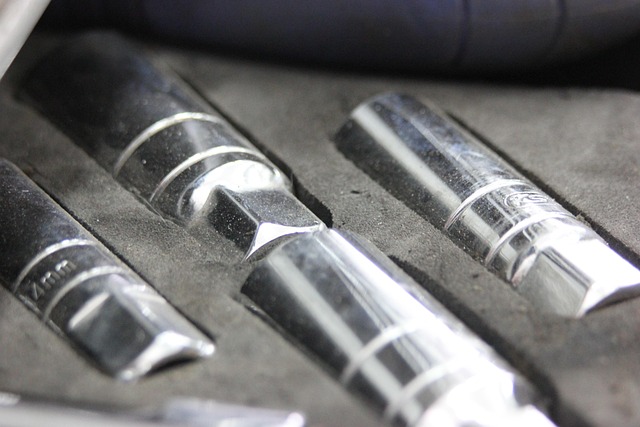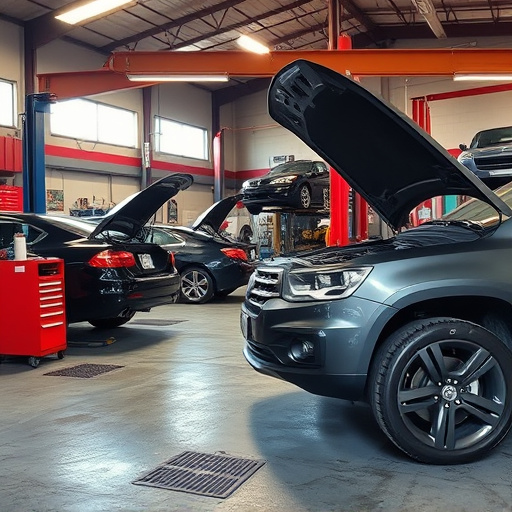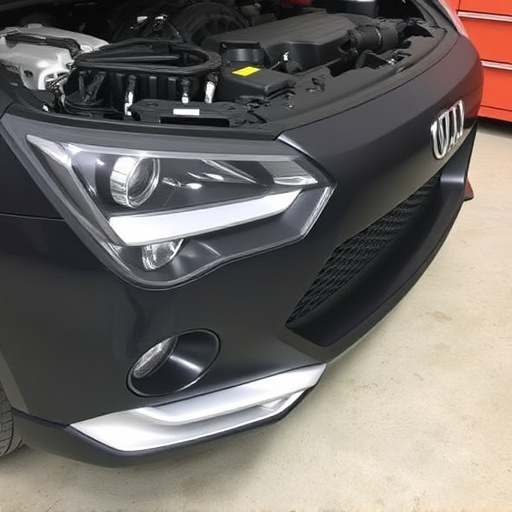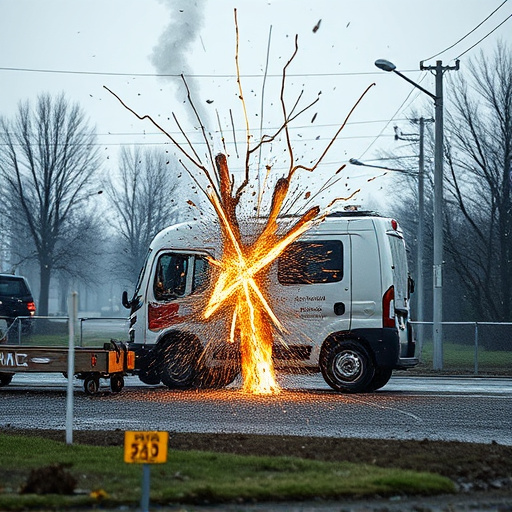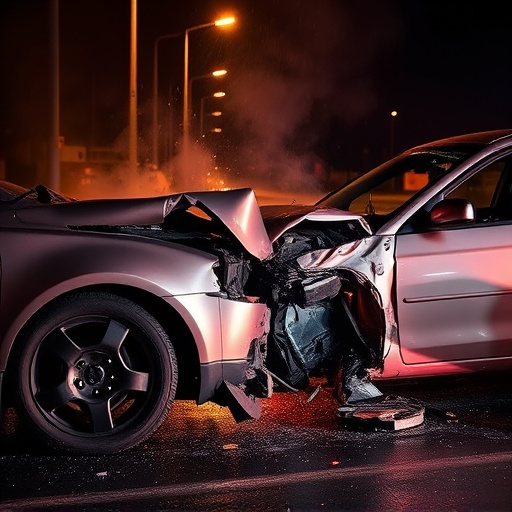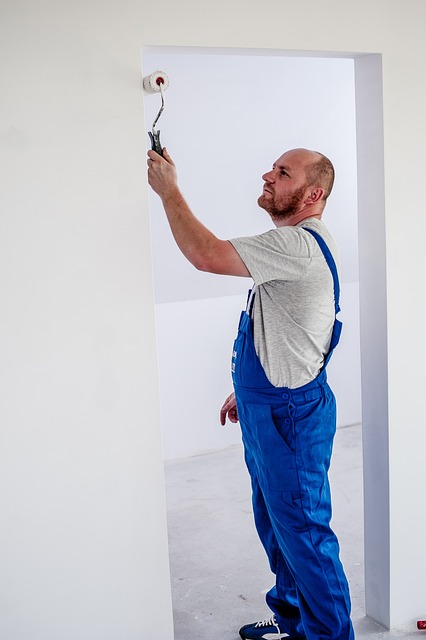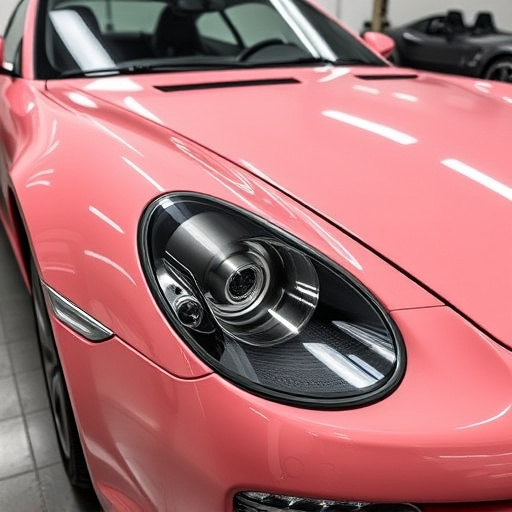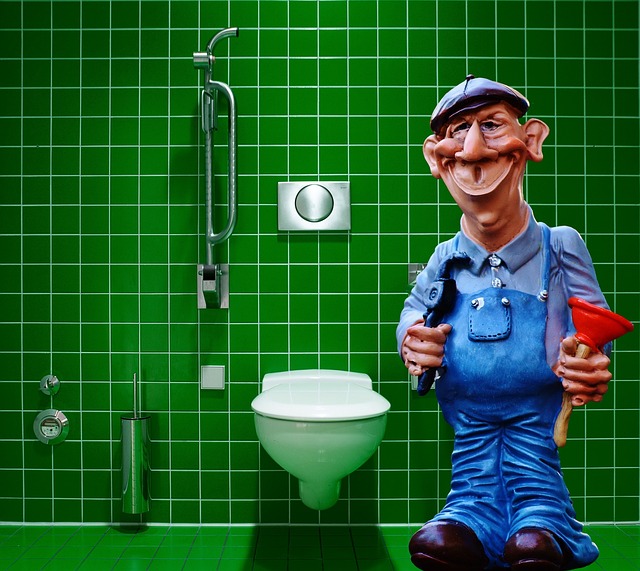Auto glass installation has evolved from convenience to critical safety component, incorporating laminated glass and advanced manufacturing for improved crash protection and reduced injuries. Modern installations enhance structural integrity, airbag deployment, visibility, and overall vehicle stability, minimizing secondary damages. Future advancements include smart materials and reinforced polycarbonate, frame straightening for seamless fitment, enhancing autobody repairs and making vehicles safer on the road.
Auto glass installation has undergone a remarkable transformation, revolutionizing vehicle safety practices. As driving dynamics evolved, so did the need for stronger, more impact-resistant glass. This article explores how advancements in auto glass technology have not only enhanced structural integrity but also significantly improved crash protection and passenger security. We delve into the changing safety standards, highlighting key innovations, and look ahead to future trends, including advanced technologies that promise even greater safety for drivers and passengers alike.
- Evolving Safety Standards: The Auto Glass Revolution
- Impact on Crash Protection and Passenger Security
- Future Trends: Advanced Technologies in Auto Glass Installation
Evolving Safety Standards: The Auto Glass Revolution
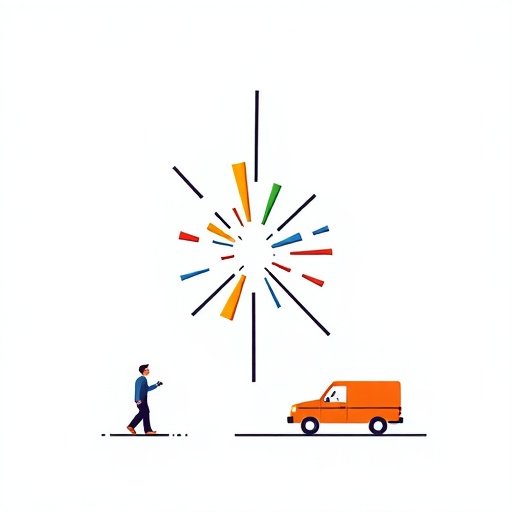
The evolution of auto glass installation has been a pivotal factor in revolutionizing vehicle safety practices. In the past, auto glass was often seen as a mere convenience, but today it is recognized as a critical component for passenger protection. This shift in perspective can be attributed to advancements in technology and an increased focus on collision damage repair. Modern auto glass installations incorporate safety features such as laminated glass, which helps absorb impact energy during accidents, reducing the risk of severe injuries.
As vehicle design became more complex, with advanced systems and materials, the need for robust yet lightweight components grew. Auto glass installation took center stage in this transformation, leading to innovations in fender repair and car paint services as well. These developments not only enhance structural integrity but also contribute to better airbag deployment and overall crashworthiness, making every vehicle a safer haven for its occupants.
Impact on Crash Protection and Passenger Security
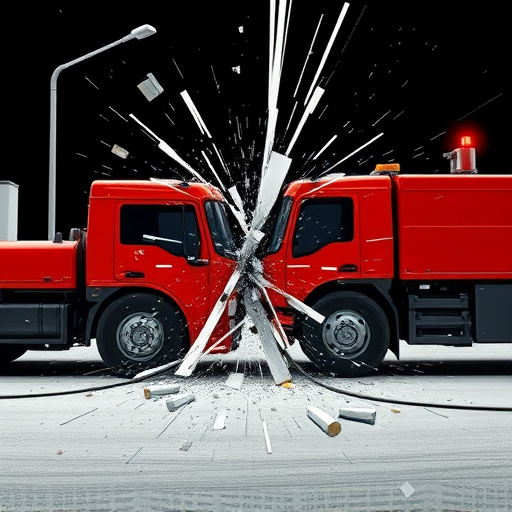
The introduction of auto glass installation has significantly revolutionized vehicle safety practices, particularly in terms of crash protection and passenger security. Modern car windows are designed to withstand extreme forces during accidents, thanks to advanced manufacturing techniques that incorporate impact-resistant materials and precise engineering. This has led to a substantial reduction in the risk of fatal injuries, as well as minimization of collision damage repair costs.
Moreover, auto glass installation enhances overall vehicle safety by contributing to better visibility for drivers, which is crucial for navigating complex road conditions and preventing accidents. In the event of an impact, properly installed auto glass helps maintain the structural integrity of the vehicle body, thus reducing the severity of secondary damages, including car scratch repair or more extensive collision damage repair needs.
Future Trends: Advanced Technologies in Auto Glass Installation
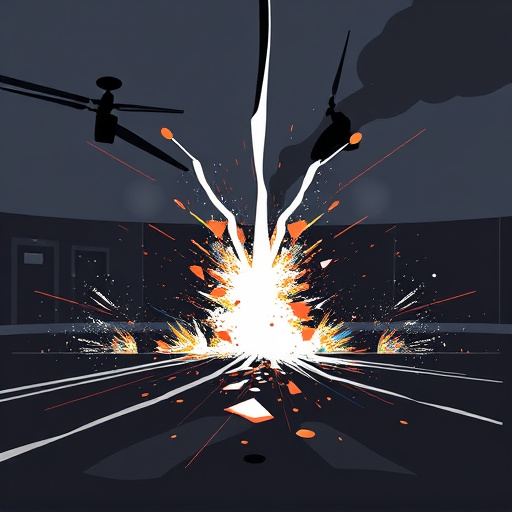
The future of auto glass installation is brimming with advanced technologies that are transforming vehicle safety practices. One prominent trend involves the integration of smart materials that can adapt to environmental conditions, enhancing impact resistance and reducing damage in accidents. These materials, often reinforced with polycarbonate or advanced composite fibers, not only improve structural integrity but also offer better insulation, contributing to improved passenger comfort and safety.
Additionally, advancements in frame straightening techniques play a pivotal role in auto glass installation. Modern frameworks designed for precise alignment ensure that glass panels fit seamlessly, enhancing overall vehicle stability. This is particularly crucial in the context of autobody repairs, where restoring structural integrity is essential for safe driving. As technology continues to evolve, we can expect even more innovative solutions in auto maintenance, making vehicles safer and more resilient on the road.
Auto glass installation has undergone a remarkable transformation, revolutionizing vehicle safety practices. From enhancing crash protection to ensuring passenger security, these advancements have significantly contributed to improving overall safety standards on the road. As technology continues to evolve, future trends in auto glass installation promise even more sophisticated solutions, further mitigating risks and securing travelers in an increasingly connected and automated world.

